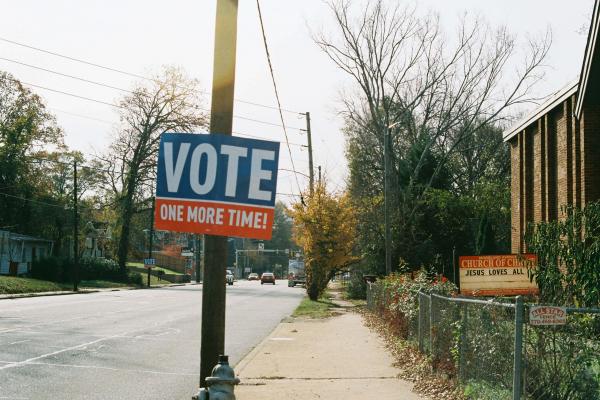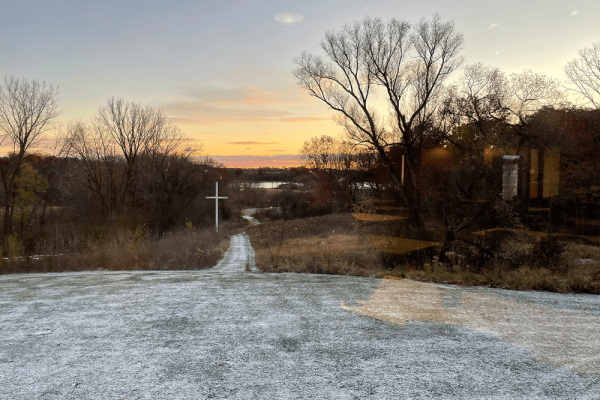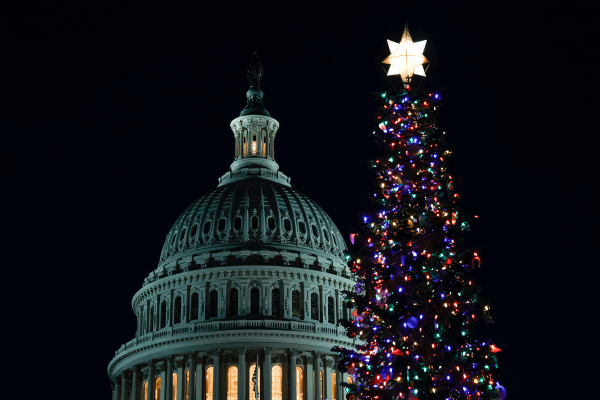It’s an election year again, and so far it seems that President Joe Biden and former President Donald J. Trump will again be on the ballot for the White House in 2024. For many churches, that means a repeat of 2020’s division, misinformation, and difficult decisions about corporate worship.
Buckle up.
We have been on this ride before, but that doesn’t mean it will be any easier.
In 2016, 2020, and even now, Trump continues to receive his most ardent support from evangelical Christians. Most white Americans who attend Christian worship services weekly backed the former President in 2020. Furthermore, the president grew his vote share among the most evangelical regions of Iowa in the state’s 2024 caucus. That means churches are disproportionately responsible for addressing and countering dehumanizing policies.
During Trump’s presidency, I penned dozens of theologically rich sermons that I promptly threw into the trash on Saturday night, as I struggled to write a response to the actions of our commander-in-chief. Whether it was Trump’s advocating for a border wall, endorsing Israel’s apartheid policies, attempting to harm our most vulnerable citizens, or brazenly trying to destroy our democracy, I addressed it in sermons. At the same time, I tried as much as possible not to make church about partisanship — a difficult balance that I know many pastors attempted during those years. How do you unequivocally repudiate governance that you feel led by God to denounce, while also making sure the focus does not solely become about who is in the White House?
I have a few ideas about how churches and leaders might approach this election season in productive ways.
1. Talk about anxiety
It is likely that worshippers will have increased rates of anxiety around this election. In 2020, more than two-thirds of Americans reported that the election was a significant source of stress in their lives. That means that church leaders must prepare for that anxiety to arise in unpredictable ways, especially as churches make decisions about a future that is less and less clear.
Luckily, Jesus addresses anxiety directly in his ministry: “Therefore I tell you, do not worry about your life, what you will eat or what you will drink, or about your body, what you will wear… And which of you by worrying can add a single hour to your span of life?” Easier said than done! And yet it is not that Jesus got it wrong, but that we struggle to put his teaching into practice. During this time, consider preaching directly about anxiety or incorporating mindfulness and silence into services. Every Sunday, my church has a minute of silence to breathe, and many from my congregation have said it is the only minute they take during their week to center themselves. One minute is not a lot, but it is something.
2. Prepare for more pastoral care
Spiritual leaders should also prepare for more pastoral care. In addition to the difficulties of daily life, parishioners will likely have doubts about our democracy, our country’s future, and where God is in all of this. Spiritual caregivers might have few answers to those questions, but making your community a safe place to ask questions and express doubt without projecting anxieties onto people will be paramount in the year to come.
3. Encourage self-care
Encourage the practice of self-care among the congregation. The most effective way to accomplish this goal is if leaders share their self-care practices and model effective ways of finding solace and building resilience in these trying times. If you’re reading this, and you don’t have those practices in place, now is the time to develop them. The last election nearly broke me, and it was because I was too plugged into the news cycle and had no way of coping with my anxiety. This time, I’m prepared with a daily meditation practice, consistent therapy, and an exercise regimen that helps me stay emotionally and spiritually healthy.
Self-care can also be used as an excuse for not engaging with the pressing challenges of our time. That is not what I am advocating for. Self-care is not an escape. Rather, it is a way that we can build resilience in order to meet the challenges of these days. It can even be a form of activism itself, so long as we do not use it to avoid leadership and prophetic critique.
4. Consider options for quick response
Consider now how you will handle trying news. Will you push forward with a sermon that you prepared the week before or alter it to speak about the news of the day? I have made mistakes here that I wish I could correct. The weekend that the news of the Hamas attack broke, I pushed forward with my regular sermon and spent time during prayer to address the atrocity. It would be another week before I could address Hamas’s attack and Israel’s occupation of Palestine from the pulpit. But in the meantime, I sent a pastoral letter to the congregation.
I share this to illustrate both the options and difficult choices that those who plan worship will have to contend with in the year to come. Ideally, I wish I would have addressed the attack immediately in my sermon, but a mid-week pastoral letter allowed me to speak about the conflict in real-time.
I have one conviction from the past eight years that I will try to act on this year: I will be bold from the pulpit, but I will not allow the worship experience to revolve around what is happening in Washington, D.C. Don’t get me wrong, addressing the attacks on the most vulnerable — the unemployed, unhoused, and undocumented — is a crucial necessity. There is no world where these events can go unaddressed theologically. At the same time, we can ill afford to make every Sunday about the moral failings of the president. Walking that tightrope is both difficult and the only way forward in my opinion.
It has been said before, but it is worth saying again that this election cycle might be the most important one of our lifetimes. I say this because our democracy hangs in the balance. Churches can ill afford to enter this year without carefully considering how they might be a voice for God’s justice. The good news is that, this time, we are wiser and nothing should take us by surprise. Our world needs faith-based voices working for justice, especially now.
Got something to say about what you're reading? We value your feedback!






